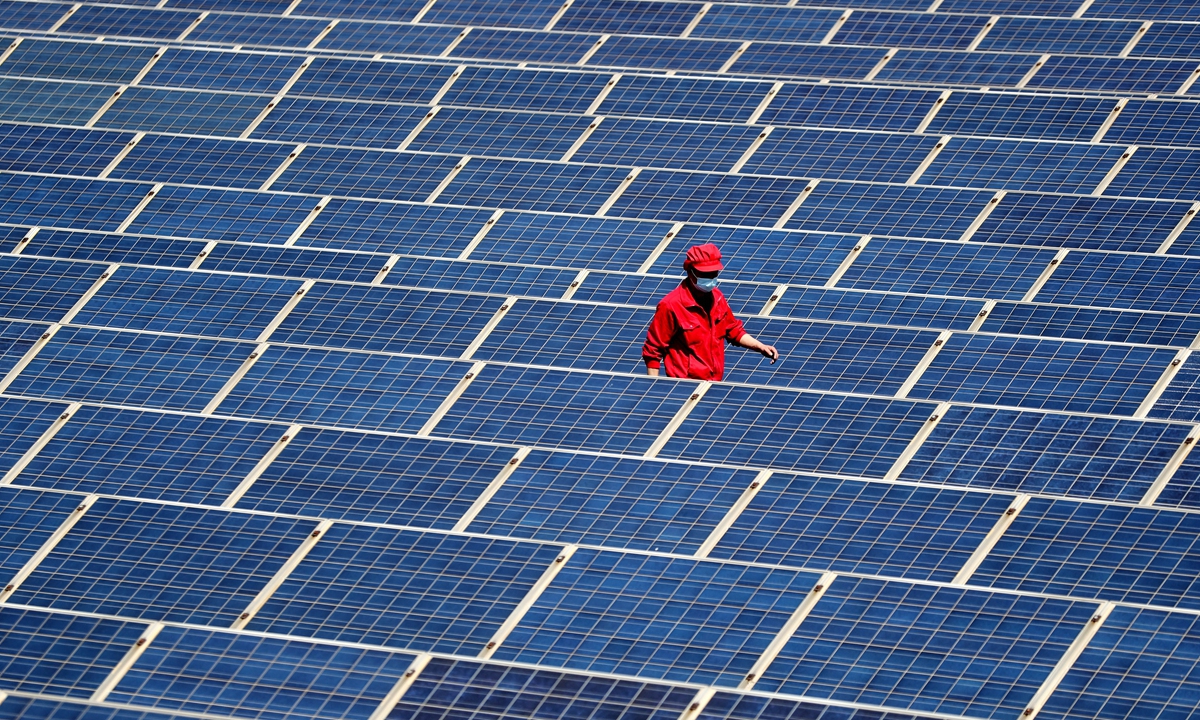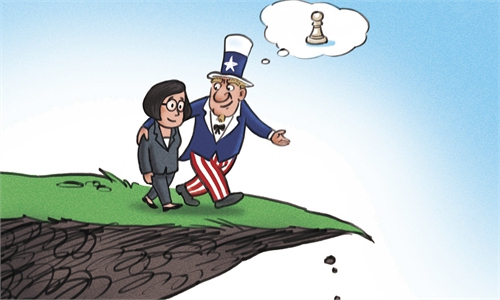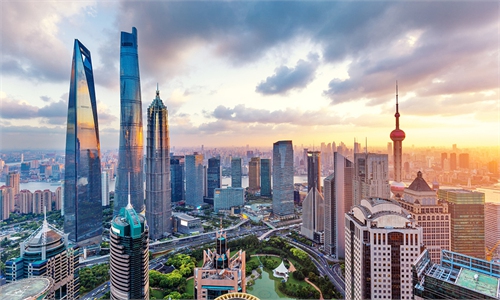
A technician inspects the rooftop photovoltaic (PV) power generation project of a company in Jimo district, East China's Shandong Province on May 4, 2022. Photo: cnsphoto
There are growing signs that the clean-energy sector is the next battleground in US-China economic rivalry, where the US is likely to pick on the issue of economic security again. But Washington's drive for economic security often follows the hegemonic logic that no one can gain more than it does.In a speech delivered at an event in Las Vegas on Monday, US Treasury Secretary Janet Yellen said that the US is trying to use the Inflation Reduction Act to build a diversified clean-energy supply chain to "reduce chokepoints, mitigate disruptions and protect our economic security" from risks posed by the over-concentration of key inputs such as batteries, solar panels and critical minerals in a handful of countries, Reuters reported.
She didn't name any countries, but it is clear she was suggesting that China's clean-energy sector poses a threat to her country's economic security. A report by the International Energy Agency earlier this year noted that China holds at least 60 percent of the world's manufacturing capacity for most mass-manufactured technologies, such as solar photovoltaic and wind systems.
China's clean-energy industrial chain has grown fast in recent years and the entire industry is still in the stage of rapid expansion, with the growing application of renewable energy sources such as wind, solar and hydrogen.
The nation's electric vehicle (EV) and energy-storage technologies have also undergone a development boom. All these achievements are mainly attributed to the support of China's heavy investment, its resource endowments, and its strength in mass production, which are totally justified given China's efforts.
But as Yellen's remarks suggest, China's development of the clean-energy sector has clearly moved the US' cheese, which is often euphemistically called economic security. While the development of the clean-energy sector may seem like an environmental protection issue, it is also a matter of capital interests and market competition.
The development of clean energy is not only an important part of the fight against climate change, but will also be one of the fields with the most economic transformation opportunities in modern history.
Against this backdrop, the US has been promoting its own new-energy industrial chains, with the goal of taking control of global green development and future clean-energy sectors.
Economic competition in this field has been fierce. China's rapid development in clean energy has already earned its products big market shares with prominent price advantages, good quality and advanced technologies.
This situation is what Washington cannot accept. As a result, the US has also roped in its allies in "de-risking" from Chinese clean-energy products, finding fault with them with a sour-grapes mentality.
It's not the first time the US has used security risks as an excuse to crack down on Chinese industries and companies, once it finds itself in trouble catching up in certain fields with normal commercial means.
So-called economic security by the US' definition is that in key industries, it benefits more and enjoys more gains than anyone else, and it must be able to control the market, which is nothing but the logic of capital hegemony. It is the same logic that Washington used to crack down on Huawei's 5G technology and China's photovoltaic products.
Yet, heavy-handed US suppression of Chinese products often backfires, especially when it comes to the development of clean energy such as wind power. Recent weeks saw several US offshore wind power plans in crisis due to the soaring costs of turbines, cables and other wind equipment.
For instance, a unit of Spain's Iberdrola SA agreed to cancel a contract to sell power from a planned wind farm off the coast of the US state of Massachusetts, while Danish developer Orsted A/S lost a bid to provide offshore wind power to Rhode Island, Bloomberg reported. Observers believe that "de-risking" is an important factor in the rising costs of wind power in the US and Europe.
It is conceivable that as China improves its clean-energy technologies further, competition will become more intense, and the US will talk about more security risks in response. What China can do is to unswervingly develop its technology and gain global market recognition with its own advantages in production scale and quality.



